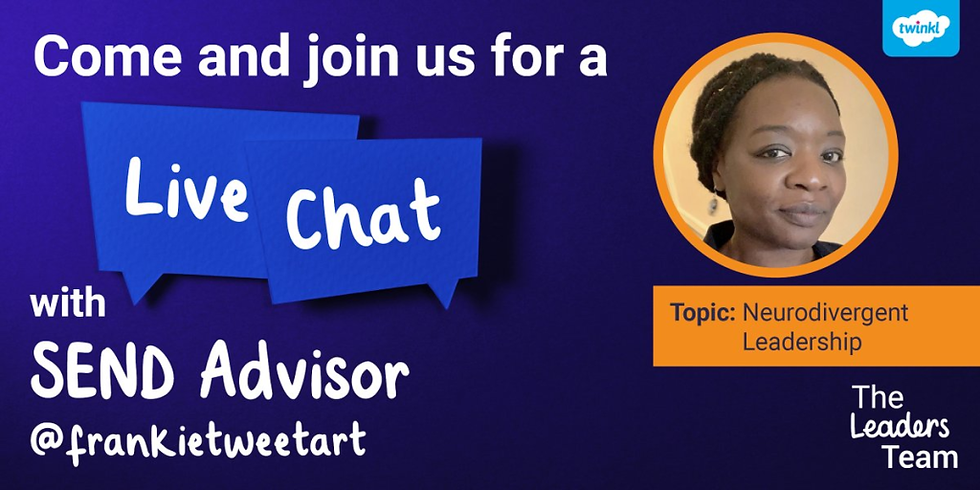The power of networks.
- inclusionht
- Jan 20, 2023
- 3 min read
Over the 20+ years, since I became a teacher, I have found networking to be essential for my professional development.
Having a strong network of colleagues has helped me to stay informed about the latest developments in my subject area, connect with new opportunities, and find mentors.
As we know all too well, the education profession is constantly evolving—new teaching methods, materials, and technologies are constantly being developed, sometimes at an alarming rate. Networking has helped me to stay informed about new developments, learn from others experiences and get up to date advice. I have also found opportunities that wouldn’t be available otherwise ( its all going on in dm’s)
For me the most important part of networking has been making connections and building relationships. It has provided me with invaluable insight into how things are done at different schools and organisations.
Online platforms such as facebook, twitter and Linkedin have allowed me to stay connected with people from all over the country and the world who in the past I may have lost contact with. It also provides an easy way to connect with people based on their likes and interests.
Over the years I have purposefully connected with people who work in roles I’m interested in and could therefore be potential mentors. Lots of people have also found new jobs this way.
Subject Associations
When I started my teacher training in 2002, one of the first things I was advised to do was to join a subject association. You can find a list of them here-
The subject association I belong to is NSEAD.
I was fortunate that in my first school in Hampshire, there was a very strong Art subject specialist employed by the local authority who supported all new teachers and linked them with more established teachers. Her support was invaluable, but also belonging to a subject association helped me to connect with teachers from across the country.
From joining NSEAD, I became a member of its ARAEA group (The Anti-Racist Art Education Action).
‘The group was set up in July 2020 to ensure that NSEAD, our subject and all who engage in it, are actively anti-racist.’
As part of my work in this group, I was fortunate to be included in the January edition of their magazine AD which was focused on anti-racism.
In January 2023, I was also nominated to be on the NSEAD council . A role I am very much looking forward to.
BAME_Ed Network
In 2019 I went to the first network meeting for BAME Ed.
BAME ed is a network aimed at ensuring educators from the global majority are represented in education. It was so good to meet other educators from the global majority and people that are active anti-racism allies as we don’t always get to network with people from different backgrounds as us on a regular basis. It has grown and evolved massively over the last few years into regional networks.
In January 2023 we launched the BAMEed SEND – BAMEed Network.
BAMEed_SEND was formed to address both the issues we see in education around the intersectionality between race and special needs and to highlight the under-representation of educators from marginalised communities in special education.
Our aims are:
1. To raise awareness around the needs of BAME pupils with special educational needs/ disabilities
2. Offer support to specialist BAME educators who are working to support our pupils to thrive
3. To work together with our allies to eradicate racism in education.
NAHT
In summer 2021, I also joined the NAHT group ‘Leaders for Race Equality’. This has allowed me to belong to a network of school leaders who face the same challenges as me as a global majority leader so has stopped me feeling isolated at times.
If you’re hesitant about putting yourself out there don’t be. The benefits of using social media as a networking tool has far outweighed the cons for me. It can be daunting but building real life connections with people that I have met on line has been worth it.






Comments